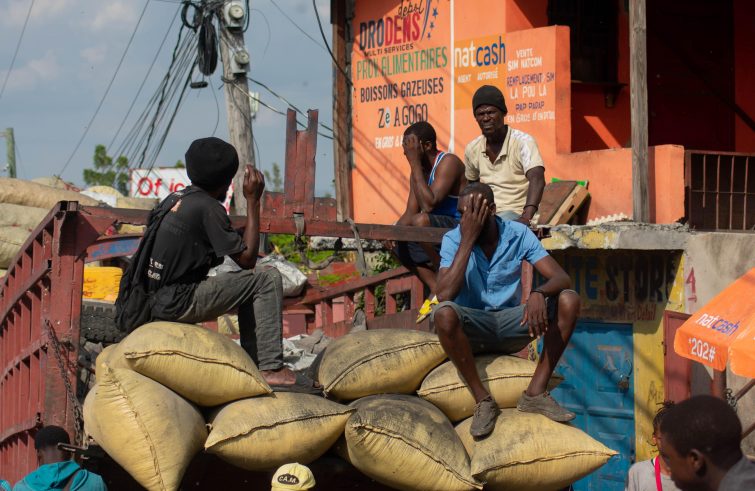
In last 10 years, thanks to the efforts of the local Church, congregations and various pastoral organisations, the Service for Charitable Interventions for the Development of Peoples ensured financial support to 70 projects to meet the needs of the local population, amounting to almost €11 million. The commitment of the Italian Bishops’ Conference for Haiti is outlined in the dossier “Camminare insieme” (Walking together), which details the Caribbean population’s plight and the commitment of the Italian Catholic Church in the country, since the 2010 earthquake that sowed death and destruction. As time passed, the social situation did not improve. Hurricane Matthew struck in 2016, and in 2021 another terrible earthquake struck southwest Haiti, killing more than 2,200 people and leaving 650,000 in a state of urgent humanitarian need. Criminal gangs are now waging an armed insurgency against the Haitian government and have attacked affluent communities in the capital, Port-au-Prince.
“The widespread charity network operating in the country, which includes dioceses with Caritas, small missionary Congregations that continue to live alongside the poorest of the poor, and a number of NGOs that have been actively operating in Haiti for a long time, has played a decisive role.”
“Thanks to this proactive collaboration it was possible to guarantee an effective and articulate intervention.”
The support of the Italian Bishops’ Conference. The projects carried out responded to crises – in particular earthquakes and hurricanes – and to socio-economic development needs in various sectors: health, agriculture, education, training. Some initiatives focused on strengthening the democratic system by developing the institutional and representative capacity of networks coordinated by civil society organisations; training and civic education, especially for young people in schools and parishes; awareness-raising initiatives on the phenomenon of corruption; support for dialogue and consultation mechanisms between public authorities and civil society; involvement and mobilisation of local communities; participation in the planning and implementation of development programmes; monitoring and evaluation of public policies and the use of funds.
“Each project is inspired by the idea of accompanying and animating local communities, with a long-term perspective, in order to provide assistance even in the most isolated and inaccessible areas,” it reads.
The Church in mission. The presence of the Church with Italian missionaries and consecrated persons, from the north to the south of the country, has been and continues to be a sign of hope for Haiti. On 25 June 2022, Sister Luisa Dell’Orto, Little Sister of Jesus of Saint Charles de Foucauld, was killed in Haiti. There are many testimonies of complete dedication in the field of aid and voluntary work, such as that of Sister Luisa, who was always in the front line, working on several fronts: the consolidation of the pastoral and social network, the promotion of voluntary work and, above all, education with the Kay Chal shelter, of which she was the heart and soul, for minors, young people and “restavek”, the domestic child-slaves of the slums of the capital, Port-au-Prince. Among them were Maddalena Boschetti, Sister Marcella Catozza and Father Massimo Miraglio. Their testimonies are recorded in the dossier. “A day centre for children and their families was financed with the help of the Italian Bishops’ Conference in 2020, inaugurated on 3 December 2021. Here we carry out educational, recreational and rehabilitative activities,” says Maddalena, fidei donum of the archdiocese of Genoa, a consecrated woman, member of the Order of St. Camillus who has served in the diocese of Port de Paix, northwest Haiti, for the past 21 years.
“All these activities are about dignifying and empowering children with disabilities, and helping families to support them with the care and attention they deserve, enhancing their strengths. We are also very active in sensitising the community about the theme of disability, which is taboo in Haiti.”











